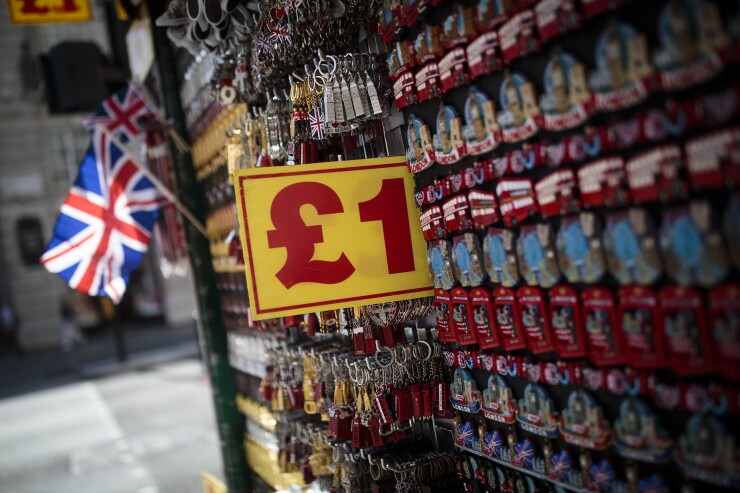When Vincent Choi made a trip to China in 2017, he saw how swiftly the payments technology was evolving across Asia.
“I hadn’t been back in a while, and I found I struggled to use my card,” he said. “It was all about mobile payments, and the smaller vendors would not take any of the conventional payment options we’re familiar with. They were just like, ‘What is that?’ So I realized that if U.K. businesses want to sell goods to consumers in those regions, they need to be able to offer the payment options they use locally.”
Over the past four years, Choi’s London-based digital payments start-up Pomelo Pay has secured a niche in the market through enabling U.K. SMEs to accept different forms of digital payments. Now in a climate of financial uncertainty exacerbated by the pandemic-enforced lockdowns and Brexit, Pomelo Pay's platform is gaining increased interest from businesses keen to ensure they are able to make every potential sale count.
The platform — which combines the QR codes, APIs and NFC technology to enable businesses ranging from restaurants to coffee shops to receive payments via mobile apps or wallets — is currently receiving unprecedented attention. In December, the company received £2.1 million in venture capital funding to support its acceleration in growth.

Fully 95% of Pomelo Pay’s clients are small and medium-sized enterprises, with a significant portion of interest currently coming from businesses previously reliant on cash. These shops are seeking to digitize to become more resilient in the wake of the pandemic.
“We’re finding a lot of work from private-hire taxi firms,” said Choi. “We’ve signed up taxi firms from Scotland to Cornwall, literally all corners of the country.”
Another reason SMEs, and particularly online retailers, are turning to Pomelo Pay is because the increasing competitiveness of the e-commerce landscape, combined with the impact of Brexit, has made it even more important for businesses to be capable of reaching new markets, especially those further afield. Through Pomelo Pay, businesses can currently accept payments from eight countries, a number Choi predicts will grow to 14 in 2021. This allows retailers to automatically accept payments via the method of choice in that region.
“Your typical business in Colchester isn’t going to know about WeChat Pay, Alipay, or GrabPay, but they might want to sell to consumers out there,” said Choi. “Businesses won’t even know they offer these payment options, but through our platform, a Korean customer for example would see the option to use Kakao Pay.”
As well as looking to target new markets, SMEs also want to find new ways to maximize their profits by reducing their blended rate at the point of sale. One U.K. startup looking to aid with this is London based fintech Banked, which provides a platform which utilizes open banking to enable account-to-account payments at checkout. This allows them to charge 0.1% to process payments, a fraction of the 1 to 4% charge which is commonplace across the industry.
“Right now getting that blended rate below 1% is very significant for merchants, because they’re being squeezed due to people shopping less because of the pandemic,” said Banked co-founder and CEO Brad Goodall. “Because of this, 2021 will be where you start to see a lot more open banking payments starting to hit the checkout.”
For merchants grappling with cash flow problems, open banking payments provide speed, with payments hitting the company’s bank account immediately, rather than pending a time delay.
“Open banking means you can offer a fee structure that can be anywhere between 75% and 90% cheaper than a debit or credit card payment,” said Goodall. “But it also puts the liquidity back in the merchant’s hands. With card payments, it can take anywhere from 14 to 30 days in some circumstances for SMEs to see that money, but this allows the merchant to receive the funds immediately after the customer has checked out.”
With the pandemic shifting so many aspects of the commercial environment, having these options could be crucial for the survival of many SMEs in the coming years.
“Because of the pandemic, behaviours will have changed, and businesses will need to change the way they operate with customers,” said Choi. “Brexit and Covid-19 have completely changed how our economy’s going to be in the next decade, and because of that, every payment counts.”




